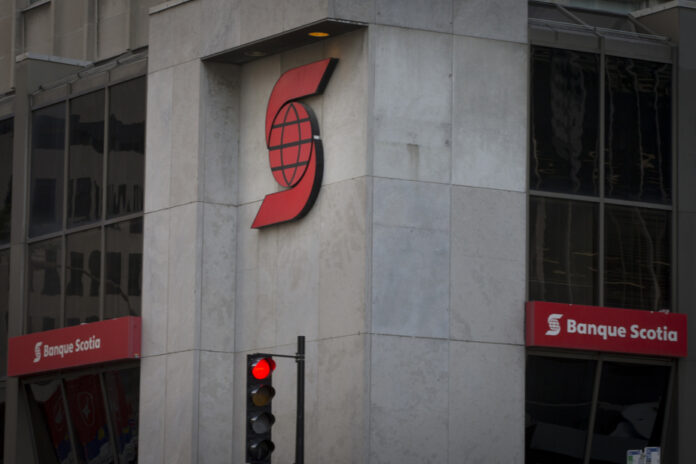(Toronto) Companies are facing increasing scrutiny over their stance in the Israel-Hamas conflict as protesters demand peace.
Many international brands, including McDonald’s, Starbucks and Disney, have been targets of boycotts, while in Canada, Scotiabank in particular has been targeted by protesters for investing in Israeli defense company Elbit Systems.
With such polarization around the conflict, experts say companies need to be especially careful in their actions, including how they respond to criticism.
Consumers generally respond more to negative perceptions of companies than to positive ones, said Saeid Kermani, assistant professor of marketing at Trent University.
Not only do negative perceptions persist, but they are shared online more quickly and widely, and involve more people, he added.
Criticizing companies can also be effective in drawing attention to a problem, Kermani said.
“Some of the activism that we’re seeing, or the backlash that we’re seeing, makes it seem like brands are easy targets in a lot of these situations,” he said.
A temporary truce between Israel and Hamas will be extended for two more days, Qatar’s Foreign Ministry announced on Monday, the last day of a four-day truce between the warring parties.
Companies have faced backlash due to different levels of perceived involvement or support.
A week ago, Canadian National Railway (CN) faced an hours-long blockade in Winnipeg by protesters calling for a ceasefire, saying they were targeting the company in part because it had a partnership with the Israeli freight transport company ZIM.
Disney faced calls for a boycott after condemning the Hamas terrorist attack and promising to donate $2 million to aid organizations in the region.
The list includes several Canadian banks that have issued statements against the violence.
“We are horrified by the killings and deaths of civilians and families. We must come together in our shared hope for peace, healing and an end to violence in the region,” RBC CEO Dave McKay said in a statement on October 12.
The bank announced a donation of $250,000, which will be split between the Canadian Red Cross Middle East Humanitarian Crisis Relief Fund and the United Jewish Appeal. Other banks have also made similar donations, including Scotiabank.
“These violent attacks are unacceptable and go against what we value as a society: the ability to live in peace and security, with respect for one another,” said Scott Thomson, executive director of the Scotiabank.
Companies should speak out on issues when they relate to their core values or missions, said Paul Dunn, a professor of business ethics at Brock University’s Goodman School of Business.
“If a company publishes a policy statement, then it is ethically obligated to uphold those values, otherwise it just seems hypocritical,” he mentioned.
Corporate values are generally broad in scope, using words such as respect, integrity and responsibility, so there are few limits to the issues they can comment on.
As the Israeli response to the attack intensified, companies with ties received more attention and talked about less.
Protesters stormed the Scotiabank Giller Prize ceremony on November 13 carrying signs claiming that “Scotiabank is financing genocide,” and a few days later, pro-Palestinian protesters staged a sit-in at the company’s headquarters. bank in Toronto.
Scotiabank has not publicly commented on the protests, but noted that investments in Elbit Systems by its 1832 Asset Management portfolio managers are made independently of the bank, unless there are investment policies specific conditions that restrict these decisions.
In an internal memo to staff, Mr Thomson placed emphasis on staff support measures, while emphasizing the indirect nature of the investment.
“I understand and respect that bank employees have very diverse opinions on the ongoing dispute, and I know we all agree that hatred and discrimination have no place in our bank. My intention with this post is to provide context and facts surrounding these protests in order to help bring some clarity during these particularly difficult times,” he wrote.
Kermani said there has been a growing expectation in recent years for businesses to intervene on issues as people view them more as social and cultural institutions, but there is also evidence of decline of this appetite.
Research also indicates that large companies with diverse customer bases face far more risk by speaking out than by saying nothing.
“You’re not really going to profit from it, you might actually end up losing a lot more customers,” he argued.















